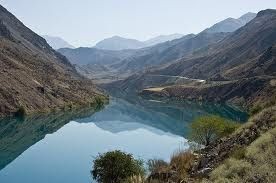BISHKEK (TCA) — Kyrgyzstan still holds on to overall economic growth – in contrast to its other major-size partners within the EEU namely Russia, Kazakhstan and Belarus, which have suffered from considerable contractions through the year 2015. In this country, the main question is not just growth, but how to adjust the breakdown of the national economy in such a manner that the staggering 40 per cent of the population consisting of deprived citizens can get the opportunity to improve their lives.
Overall the Kyrgyz economy continues to decline, employment is missing, people continue to migrate, and the development of small and medium enterprises in the manufacturing sector is still at its early stage. Let it be clear: creating jobs does not mean giving people jobs for jobs’ sake as they used to do under the Soviet regime. Each and every new job created under the current conditions can only subsist if the job, either through self-employment or employment, earns its money back in the form of sales income and profit. In other words: good jobs are any employer’s asset, not his liability. Kyrgyzstan’s membership of the Eurasian Economic Union, obtained last year, did not give the impulse to adopt that principle. Probably the country was not ready to join the EEU, but whatever the case so far a proper strategy has not been adopted. Today the service sector has increased by 3.7 per cent and kept occupying more than half of the national economy even though that economy does not need that much service. It means that under the current conditions, non-productive jobs prevail over productive ones and that trend keeps moving in the wrong direction.
With a multi-headed fundamentalist monster on the doorstep represented by the IS, the only way to defend society against it is to put everybody at work and improve the living standard of the population. Do not forget that those extremists look for people with nothing to lose and wherever they find them they have a weapon no other army has at its disposition.
Production and trade figures
How urgently needed is that in Kyrgyzstan is demonstrated on top of all else by the fact that, according to statistics, Kyrgyzstan’s industrial output amounted to 175.164 billion som – an on-year decline of 4.4 per cent against one of 2.6 per cent on-year in 2014. This was in spite of the fact that due to the opening of a second oil refinery in the country output of oil products increased by 70 per cent and due to the opening of a number of new mines metal ore output increased by 380 per cent, each year-on-year. In spite of a decline in productivity of the country’s largest (gold) mine Kumtor by 8.2 per cent year-on-year. Still, gold accounts for almost half of Kyrgyzstan’s exports and has never been able to cover the country’s trade deficit, which over the first 11 months of 2015 narrowed from the previous year because imports dropped by 27.4 per cent (excluding gold by 21 per cent), which in part offset a decline in exports by 10.7 per cent on-year. Exports of fruits and vegetables fell by 34.8 per cent on-year and those of tobacco by 27.8 per cent, while those of oil products fell by 1.7 and those of clothing by 2.2 times from the previous year. Concerning the agro-products, sales declines stand in sharp contrast to the fact that the overall agro-sector’s output value over 2015 has been put at 197.66 billion som, an increase of more than 10 per cent from the previous year. So how is it that production and trade figures in many sectors of the Kyrgyz economy, if compared to output volumes and values, simply do not seem to make sense?
Think of the people at large
Among the possible answers is the fact that a raise in most import duties has made peddlers’ trade from China to both domestic and neighboring markets run dry and import replacement by domestic produce more lucrative. This is a good trend, but the response from local manufacturers is too slow to trigger a major breakthrough in socioeconomic terms and unable to create a timely shift in the socioeconomic configuration of Kyrgyzstan. A bad omen is the possibility that the people who control the “black” and “grey” markets are seizing the opportunity to get Kyrgyzstan’s industry in their grip as an alternative to smuggling. Legislation and law enforcement which are fair but do not “choke” people’s initiative are indispensable in this process.
There is no substitution to hard work and private initiative, but as long as the Kyrgyz system continue to put up barriers and the population do not roll their sleeves up and remain able to involve themselves in new productive venture the situation will continue to deteriorate. A consensus on economic development in the Parliament and the Government is needed here – meaning: stop squabbling over irrelevant issues and think of the people at large. The country is facing a new transition that should fit into a regional strategy. The sooner, the better.

